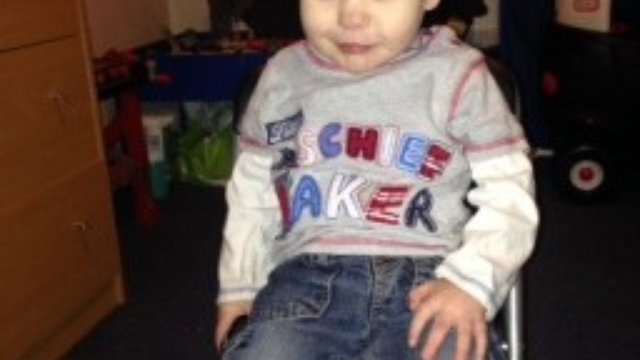On Air Now
The Capital Evening Show with Jimmy Hill 7pm - 10pm
26 May 2016, 12:06 | Updated: 27 May 2016, 12:06

Jurors in the trial of a mother accused of murdering her two year old son with her civil partner have been told to put any sympathy or prejudice to one side, as they prepare to consider a verdict in the 'highly emotional' case.
Rachel Fee or Trelfa, and Nyomi Fee deny fatally assaulting Liam Fee, who died at a house near Glenrothes in Fife in March, 2014.
The pair say another boy, who cannot be identified, was responsible for his injuries.
Judge Lord Burns has begun directing the jury at the High Court in Livingston, where he told panel members that while the Crown case asks that inferences be drawn from the evidence presented, they should not be tempted 'to fill in any gaps'.
Lord Burns said: ''Those inferences must be reasonable and must not amount to speculation.''
He said there is a danger of feelings of prejudice or sympathy in the 'highly emotional' case, and that members of the jury 'would be made out of granite' if they had not been moved by some of the evidence.
But the judge said: ''You must act impartially and dispassionately.''
The couple are accused of repeatedly inflicting 'blunt force trauma' to Liam's head and body and of the ill treatment and neglect of two other boys.
The pair have admitted during evidence that they failed to seek medical help for Liam for a suspected broken leg in the days before his death.
Trelfa said she feared social workers would be alerted and remove her child from her care.
Her lawyer Brian McConnachie QC told the jury earlier on Thursday: ''By failing to get medical help, Rachel Fee committed an unforgivable crime and in due course she will be rightly and justly punished for that.
That does not make her a murderer.
Tragedy is an overused word in this court but the death of Liam Fee is a real, genuine tragedy.''
He told the jury: ''Do not compound that tragedy by convicting Rachel Fee of the murder of her son when there's not a shred of evidence to support that contention.
The Crown case is one of illusion, of smoke and mirrors.''
The judge has previously told the jury to put any sympathy or prejudice aside as they consider their verdict in the "highly emotional'' case.
He said there is a danger of feelings of prejudice or sympathy in the case, and that members of the jury "would be made out of granite'' if they had not been moved by some of the evidence.
But the judge said: "You must act impartially and dispassionately.''
On Friday, he summed up the position of both defence QCs, including that they say the Crown has not demonstrated that the women had a common plan, and that there is no direct evidence against either accused of any assault against Liam.
He said the defence had criticised the evidence-gathering process involving two young boys linked to the case and that one lawyer had described the prosecution case as one of ``smoke and mirrors''.
The judge said the defence also pointed to evidence which suggested that Liam was in general well cared for and provided for.
Lord Burns told the jurors they could return verdicts of guilty, not guilty or not proven to the charges - the latter two being verdicts of acquittal.
He said they were under no pressure and could take as long as they needed to reach their verdicts.
After speaking for about half an hour, the judge told the 14-strong panel: "I now formally invite you to begin your deliberations.''
The women are accused of eight charges in total.
Both accused, originally of Ryton, Tyne and Wear, deny murdering Liam.
They also deny attempting to defeat the ends of justice by falsely incriminating another boy for Liam's death.
They further deny a catalogue of allegations of harming and neglecting two young boys, including the one they blame, over more than two years.